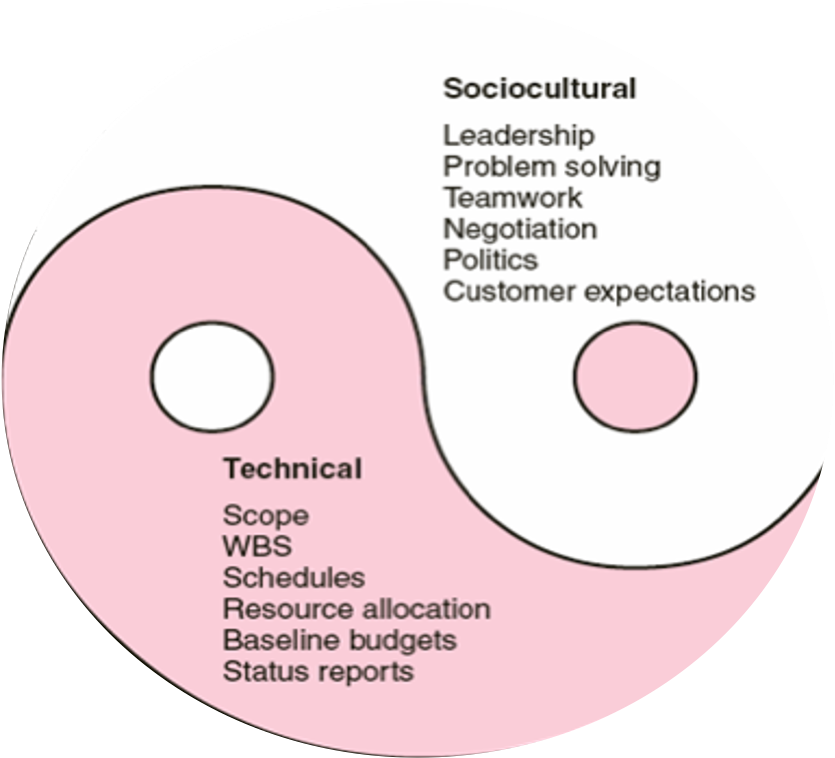Project Management 101
When people hear the words project management, they normally think two things: ‘I don’t have to do this, only project managers need to do it’ or ‘it’s very easy to manage a project.’ This is not the case and should not be the case! Anyone in a management role or in a role which involves project would benefit from learning about the basics of project management.
In this blog, we will look a bit more in depth on the following:
Project Understanding
Project Planning
Project Control
The Project Manager
Evaluation and Reflection
Project Understanding
Before we look at project management in detail, we need to know and understand what a project is.:
A project is something temporary to create a unique or new product, service, or result
This means creating a new product or small things such as office relocation are all projects.
When looking at project management, we must also know and understand the need of the project. Questions that can be asked are:
What caused the need for the project?
Who are the stakeholders of the project?
What are their goals for the project?
Is the main project driving force internal or external?
What’s the phases of the project?
What are the milestones?
Watch Amy Hamilton, a Project Management Professional (PMP) talk about the project of life
Project Planning
For all projects, planning will be one of the most important steps. Different project managers plan in different ways, but generally the following steps can be followed:
Identify Activities:
Be aware of all of the activities within the project. This means each step of the project and their expectations.
When do they need to be done by? Who is in charge? What stages are critical? What are the deadlines? How much will each activity cost?
Plan & Guestimate Time and Resources:
When activities are identified, estimation of time, what resources are needed and cost of each activity needs to be planned out.
Identify Relationships & Dependencies:
Which activity of the project is dependent on a previous one? What stages are critical?
Identify Schedule Constraints
Where are the potential setbacks going to come from? What is likely to raise the cost or time or decrease quality? Planning this will minimize all those 3.
Fix the Schedule
Revisit the draft schedule that has been made and edit to take into account what has gone through!
When planning, it is important to pay close attention to the project constraints and how each may impact each other.
Project Control
As we can see, there are several constraints to any project. This is why projects needs to be controlled in one shape or another. Project control will include, but not limited to the following:
How to monitor the progress
How to measure the performance
How to intervene to make the necessary changes
Different managers and different companies will use different tools to help control and manage the project. It is important for any tools that are being used is understood clearly and is being used to help the project (in time, quality, cost and scope), rather than hinder the project. Depending on the nature of the project, a combination of tools from different departments may be needed. One of our recommendation is the use of a Gantt Chart. This is due to its ease of use, editing and overall simplicity. Below is a link to download our free Gantt Chart Template:
https://docs.google.com/spreadsheets/d/12RUocrnVqeM0cWQ8k0iMX7eYEYE7lCuH/edit?usp=sharing&ouid=102978476184455511014&rtpof=true&sd=true
The Project Manager
A project manager in any project management task is one filled with stress, and hard work, however it is also rewarding when implemented properly and accurately. The project manager’s are the central point for the projects. They are the ones doing, implementing, analyzing, adapting, fixing and delegating.
Project managers however do not only need to be able to do and analyze, they need the social-cultural skills. This is as the project manager is someone who will likely lead a team and he/she will need to know how to deal with the politics of managing his/her team in meeting deadlines and quality, as well as reducing cost. A project manager need to also know how to motivate the team, convince upper managers/leaders, as well as be able to have the technical side.
Evaluation & Reflection
One often overlooked part in projects in the evaluation and reflection. For many projects, project managers or companies normally end it when the project ends. However, all projects should be reflected and evaluated to see what can be learnt from said project.
Evaluation of the project will have many benefits. This will range in the company being aware of their mistakes and what to learn from for future similar projects, as well as evaluation of the team’s ability and performance. Evaluation will also allow the company and the project manager to see where this project is compared to industry norms. Evaluation and feedback collection can also mean the company will be able to know if they have met the needs of the relevant stakeholders. The leader however at all points need to ensure all feedback is relevant, respectful and reliable.
Feedback and evaluation can be collected from the following:
360 evaluation: self evaluations, peer evaluations, subordinate evaluations and supervisory evaluations
External sources like vendors, contractors, consultants, and even regulatory agencies
Comparison with industry norms via statistical analysis and/or literature review
Trade groups, seminars, and professional associations
Survey tools
In terms of reflection, the company, the project manager and the whole team involved in the project can reflect on the following questions:
What went well with this project and why did it go well?
Were we able to successfully complete project objectives and goals?
Were team members’ strengths and weaknesses correctly utilized?
How was the communication line? What could have been improved or changed in terms of communication?
How was progress monitored and updated?
How could cost and time be reduced in the future? What improvements can be made for quality?
What should leadership do the same/different going forward?
If you are a manager or a team member involved in any projects, then this is the training for you! Click below to see our Project Management Training to get introduced to the world of project management!




